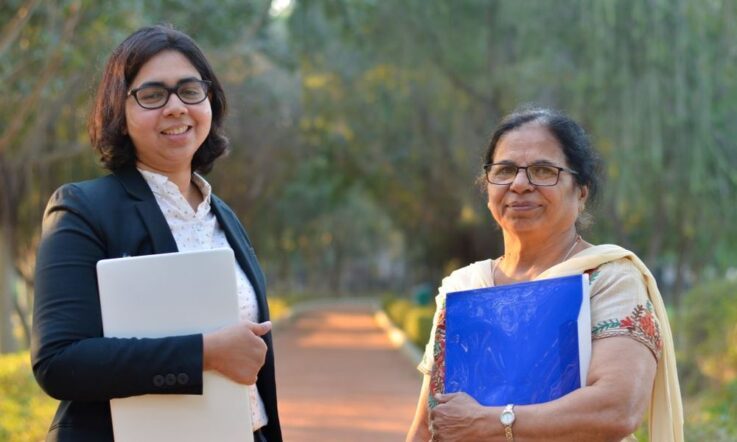Dr Sheetal Rajvenshi has received the Jigyasa Progressive Educator Award for prioritising professional learning which will enable her to enhance the academic outcomes of students at her school.
Earlier this year, she completed 60 hours of training through ACER India’s online festival Jigyasa, designed to provide teachers with instructional support through research-driven, classroom-focused, and job-embedded learning. The festival had 8 workshops on different topics, such as designing multiple choice questions, assessment of higher order thinking skills, integrating assessment and instruction, student performance reporting, and assessment of 21st century skills.
Dr Rajvenshi teaches at Darbari Lal DAV Model School Pitampura in New Delhi. Established in 1981, it now has more than 3000 students and 250 teachers. A co-educational English medium school affiliated to the Central Board of Secondary Education (CBSE), DLDAV School is also a member of the National Progressive Schools’ Conference (NPSC).
Teacher caught up with Dr Rajvenshi to find out what motivated her to complete 60 hours of training and how she has used the new strategies to make learning every day a holistic and robust experience for students.
Why did you participate in the Jigyasa professional learning festival?
My eagerness to know and learn about designing multiple choice questions (MCQs) in assessments was a strong reason for joining the festival. Our school principal and teacher-in-charge knew about my interests and enthusiasm for learning scientifically-sound techniques. They motivated me to be a part of this festival. I am happy that the journey of exploring new avenues and revisiting old ones in a new cloak was amazing. Thank you to ACER India for arranging the workshops.
Why was it important for you to participate in all 8 workshops of Jigyasa?
The beauty of the festival was that each and every workshop focused on an individual topic, but at the same time they were interconnected. By attending all, my vision was broadened in a range of interrelated topics such as designing MCQs or assessing higher order thinking skills. The workshop on blended teaching-learning was relevant in today’s context.
Which was your favourite workshop and why?
Although I have attended all the workshops, my favourite one was Crafting assessments: The art of designing MCQs in English. This workshop provided valuable insights on framing competency-based questions in English, the subject I teach in my school. It familiarised me with the key principles of developing high quality assessment questions and the essential components of a good test. The trainer was not only well informed but also cordial and helped us create a workplan for the future.
How have you used the learnings from Jigyasa in your own classroom?
I have started using the knowledge I have gained in my classroom teaching and assessments. I am framing MCQs more frequently and with ease, while preparing question papers for children; motivating students to practise literature in the form of MCQs; and even using learning apps like Quizizz and Coggle (a Mindmap) in home assignments and to help students recall what they have learnt in the previous lesson, which were taught in the blended teaching and learning workshop.
In this article, Dr Sheetal Rajvenshi talks about framing competency-based questions. Have you received any training that helps you to design questions that measure the skills of students? Do any of your colleagues have this expertise that they could share with others through in-school professional learning?
As a school leader, do you provide teachers with regular opportunities to participate in professional learning festivals and other forms of training to help them meet the needs of their students? How often do you assess the professional learning needs of your teachers?



